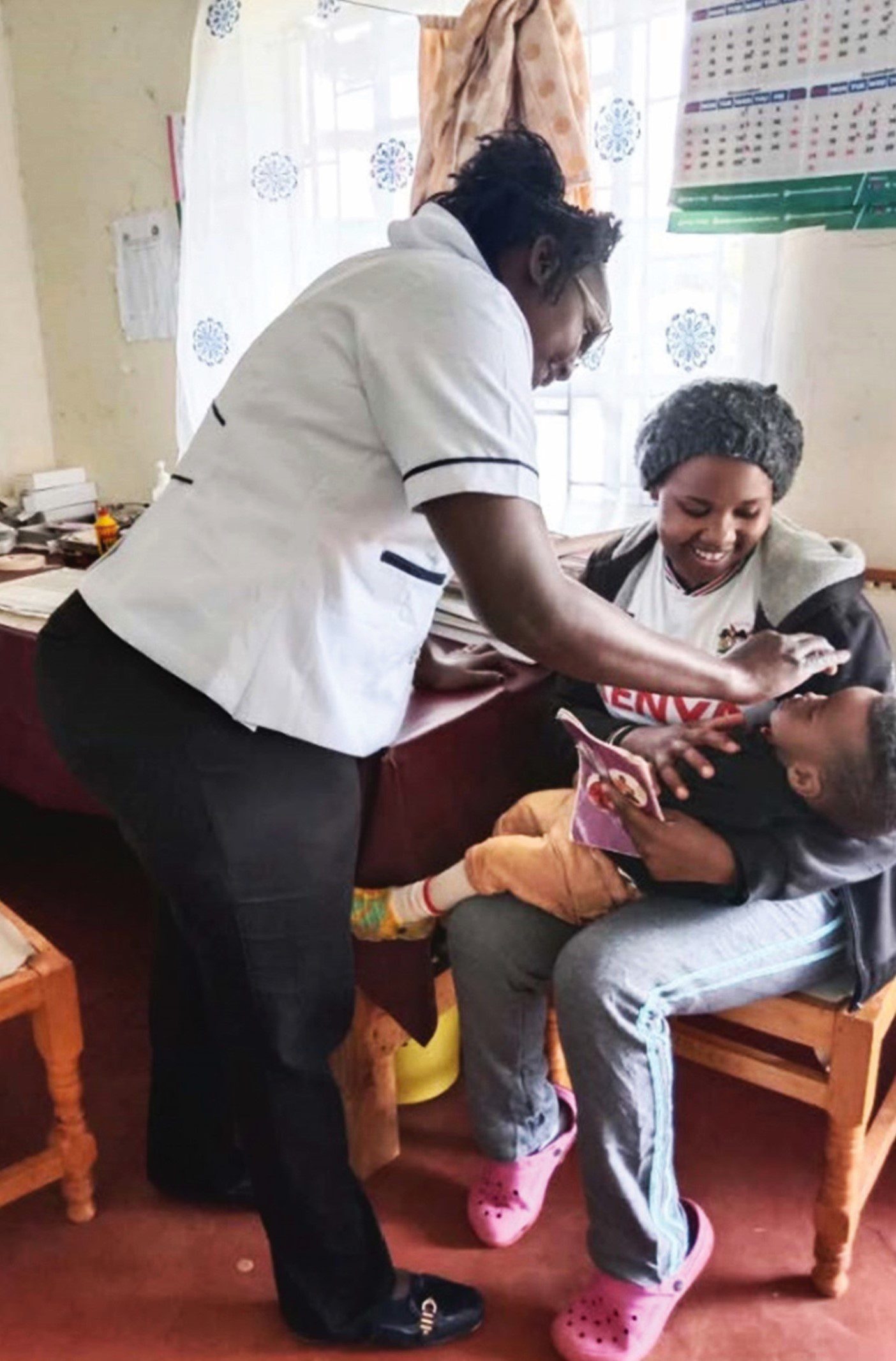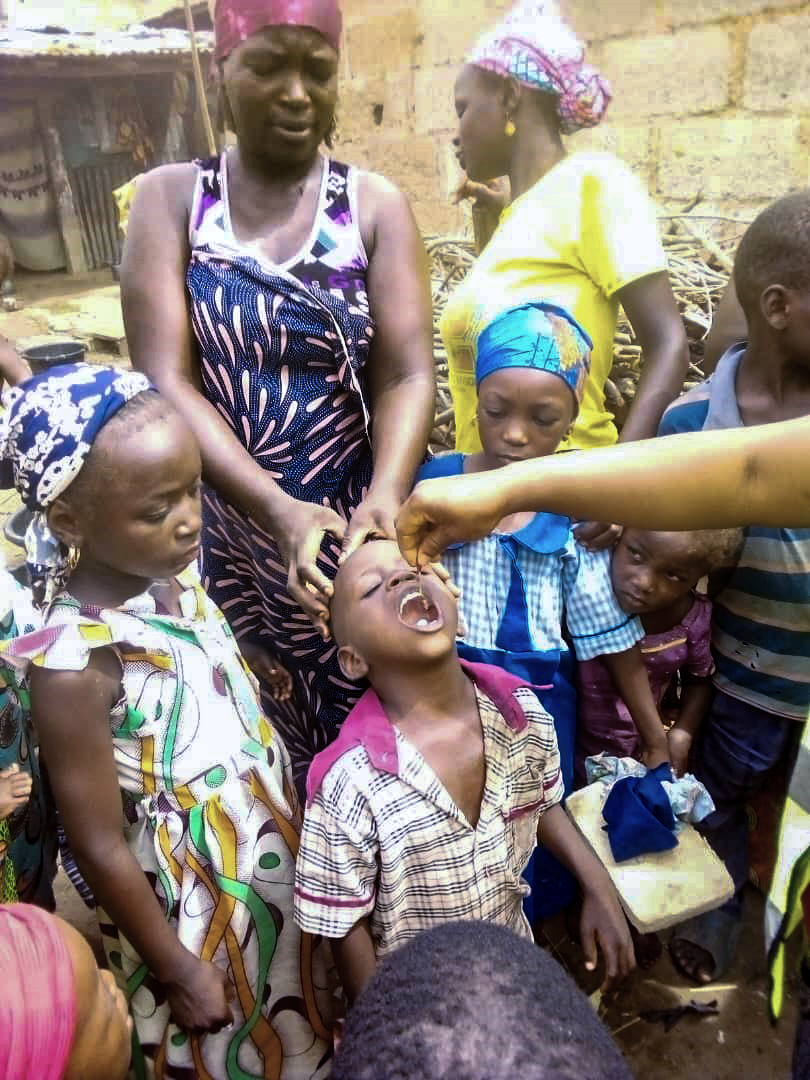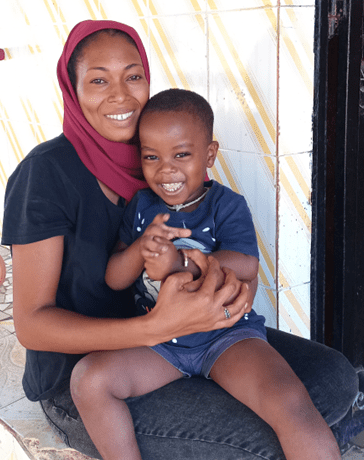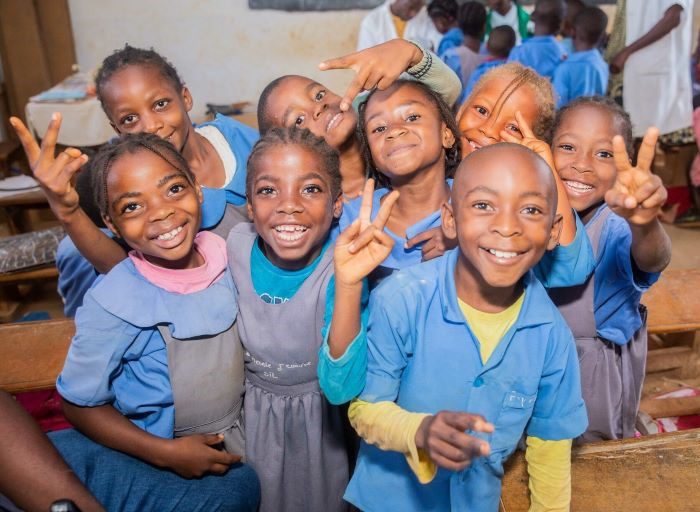Saving Sight and Lives with Micro but Mighty Vitamin A
Vitamin A is a micronutrient that is critical to children’s growing bodies and brains. A single capsule of vitamin A – at a little more than $1 each – given to children twice a year until their fifth birthday can literally save their sight and lives. However, vitamin A-rich foods are also often either not accessible or too expensive for many families living in poverty around the world.
Helen Keller Intl partners with governments across Africa and Asia to provide millions of children every year with lifesaving vitamin A and other nutrients through door-to-door campaigns and at local clinics. To increase vitamin A in a child’s diet naturally, we partner with communities to help cultivate orange-fleshed sweet potatoes and other nutrient-dense foods in home gardens and farms.
Last year we distributed nearly 69 million doses of vitamin A thanks to the dedicated members of the Helen Keller community, including community healthcare heroes, mothers, staff, donors, and other supporters. Their contributions are helping ensure that 35 million children receive the nutrients they need to develop, grow, and thrive. GiveWell has recognized Helen Keller’s vitamin A work as one of the most cost-effective, high-impact treatments in the world and has named us a top charity since 2018.
Some of the many ways we work to reach children with vitamin A include providing counseling and education to parents about the importance of this micronutrient for their children’s health, connecting with communities during vitamin A campaigns to build trust and dispel misinformation, and integrating supplementation into routine child health services.
Counseling Mothers to Improve Infant Health in Kenya

Nurse Astrid Wanja Joe is dedicated to supporting mothers in improving the health of their babies and young children in Kenya’s rural Tharaka-Nithi County.
When mothers bring their children to the local health clinic where she is the supervising nurse, Astrid counsels them on a variety of important health issues such as good nutrition, immunizations, and vitamin A.
“Mothers really appreciate the knowledge I share with them every time they bring their babies for a visit,” Astrid says. “This has been the game changer.”
Astrid and the other nurses received training from Helen Keller to help them better educate mothers on vitamin A’s critical role in children’s healthy growth and development, as well as the importance of twice-yearly supplements and a vitamin A-rich diet. Astrid also partners with Helen Keller to reach even more children with vitamin A supplements and deworming treatments through school outreach campaigns.
Thanks to healthcare heroes like Astrid, mothers and communities understand more about nutrition, and vaccination rates have increased.
Dispelling Misinformation about Vitamin A in Nigeria

Living in the rural, often insecure, village of Bwari, Nigeria, meant that Aisha Abdullahi and her neighbors rarely saw healthcare workers. “Insecurity made it difficult for us to access a good healthcare system, as most health workers avoid our community,” Aisha says. Without much exposure to modern healthcare, people in her nomadic community were also skeptical of conventional medicine.
When a Helen Keller team visited the village as part of a vitamin A supplementation campaign, few caregivers were willing to let their children receive vitamin A. To build trust and dispel misinformation, Helen Keller hosted informal education sessions to help people better understand vitamin A’s importance for children’s vision and their healthy growth and development.
Inspired by these sessions, Aisha chose to give her four children vitamin A. Her positive experience encouraged other parents to give their children vitamin A, helping us reach 82% of children in the region.
Aisha hopes this is just the beginning. “I wish the [campaign] will not stop but will continue in our community and other hard-to-reach areas,” she said.
Building Healthier Futures with Routine Vitamin A in Senegal

Prior to her first pregnancy, 29-year-old Ndeye Awa didn’t realize how critical vitamin A is for children’s healthy growth and development.
While expecting her son, she took part in education sessions for parents on vitamin A and health in her rural community in the Saint-Louis district of Senegal. The midwife she saw for prenatal care also emphasized the importance of regular check-ups and doses of vitamin A. Then after her son, El Hadji Lamine Sarr, was born, Ndeye was again reminded at the local clinic to bring him twice a year to receive his vitamin A supplement.
The emphasis on vitamin A wasn’t a coincidence, it was by design. Helen Keller partnered with the government of Senegal to help integrate vitamin A into routine medical care. This approach is both sustainable and cost effective because it pairs vitamin A with other recurring services, such as immunizations or visits to monitor a child’s growth.
The approach has been valuable for Ndeye. “Before, I didn’t know that keeping vitamin A supplementation appointments was necessary and so important for children and moms,” she says. “Now I respect [the appointments] because I know it protects my child and helps him grow up properly.”

Help give children a healthier start in life.









